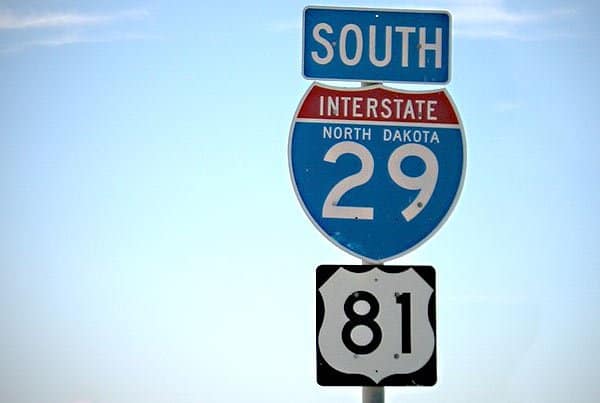John L. Inman III/contributing writer
KANSAS CITY — Ideas are still flowing after a Nov. 16 collaboration meeting here at Midwestern Baptist Theological Seminary (MBTS) over the Interstate 29/49 Corridor Project.
Representatives from five Baptist state conventions plus those from MBTS attended to look at reaching a largely unreached area. One of the key MBTS leaders involved with the project is Rodney Harrison, vice president for institutional effectiveness who will be a key in activating the seminary hub.
“The corridor begins here in Kansas City,” Harrison said. “In fact I think it’s unique that MBTS is strategically located at Exit 1 of I-29. It goes all the way up through the Canadian border and in the process goes through Missouri, Iowa, Nebraska, and North and South Dakota.
“This is an area seen to be a pioneer frontier for Southern Baptist work. It includes several major cities such as Sioux City, Sioux Falls, Omaha, Grand Forks and Fargo. But it is also an area that is really untouched by much Baptist evangelistic effort. It is predominately Lutheran and Roman Catholic based on religious preferences of the people. So it is a very unique area. An area that is very religious and yet very few would say they had a personal relationship with Jesus Christ.”
Harrison is familiar with the northern area of the region as he was a church planter in Hallock, Minn., in the 1980s.
“Today through MBTS’s online program we are telling church planters, men and women, you do not have to leave the field,” Harrison said. “You don’t have to forfeit the call to be able to complete your theological training and yet that’s still not known. Many on the corridor are still surprised we have these offerings.”
“The online degree is one that is very unique because along the I-29 corridor what you will not find are theological seminaries. You will not find conservative schools we would feel comfortable sending our God-called men and women for their studies. So through the online degree offering a student can complete their training while they may be in Fargo or Grand Forks or one of the smaller rural communities.”
Midwestern’s location and willingness to be a part of something bigger than itself are crucial assets going forward, Harrison said.
“There are only six cities in North America that have a main campus of a Southern Baptist seminary,” he said. “To have a seminary as a part of this 1-29 corridor strategy is very significant. From the meeting the state partners will hopefully be looking to MBTS not only for just students feeling called to plant churches, but also students called to go in and be a part of existing churches that have plateaued and maybe are declining and also helping to lead the way in research, continuing education training and even the possibility of deploying teams to help with evangelism and cultural research projects.”
Some programs Harrison said Midwestern can provide as the project unfolds will be certificates and degrees in contextualized development, Christian ministry, church planting and theology. He said Gus Suarez and Luis Mendoza will be heavily involved in working on this project to help those who might not qualify for a traditional seminary degree due to not completing college or even having a validated high school education because they are from another country.
With the increasing population along the I-29 corridor of Hispanic workers, being able to train cross-culturally will be an important facet of the project going forward.
“MBTS has been given a tremendous opportunity,” Harrison said. “Being a part of the I-29 Corridor Project is exciting for us. We are just one of the many players in this. We have come together and now are just looking forward to the implementation and praying God will send us the students and the churches will send us the students that we can train and deploy as church planters.”

